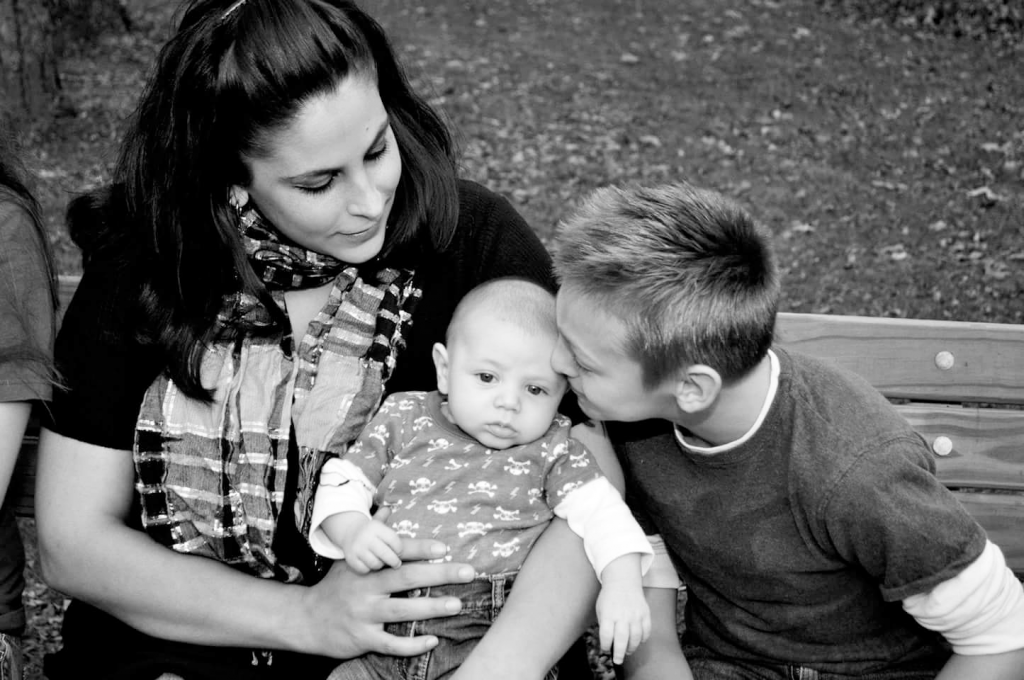Note: October is Learning Disabilities/Dyslexia/Attention Deficit Hyperactivity Disorder (ADHD) Awareness Month
“High achievement always takes place in the framework of high expectation.”
—Charles Kettering, American inventor, engineer and businessman.
As parents, we all want to see our children reach their full potential. Our visions of their successes and accomplishments may vary, but we all yearn to guide our children to greatness. How do we set them up to fulfill their potential? What foundations are we building for them? What roadmaps can we provide to help them navigate on their journey?
I am the proud mother of three terrific children (Biased? Yes!). While each of them is unique and inspiring in their own abilities and qualities, my sons have some very distinct similarities.
In the early school years, both began showing similar behaviors: high impulsivity, defiance, acting out, disruption, the inability to follow direction and under-developed social skills.
Both were bright and strong willed and insisted on doing things their own way in their own time.
Both were identified by educators as “challenging and difficult” and by peers as a “bad kid.”
They were both evaluated at five years old, 10 years apart. That’s where the similarities ended.
Let’s start with my older son’s journey.
In 2007, at age five, he was diagnosed with attention deficit hyperactivity disorder (ADHD), pervasive development disorder otherwise non specified (PDD-NOS) and anxiety. His individualized education program (IEP) team, despite all good intent, viewed my son through a deficiency lens. We let the troublesome behavior take the driver’s seat. His aptitude for learning did not seem to align with his behaviors. The behaviors escalated. The suspensions began. His progress regressed, and his growth stalled. We changed schools often. Even though we began as advocates, we soon became adversaries in IEP meetings.
On the other hand, my youngest son has had a very different experience. At age five, he was diagnosed with anxiety and showed a high likelihood of having ADHD. He was also identified as gifted. We worked closely with his school to find a teacher who was a good fit and we collaborated with the occupational therapist, the talented and gifted team, and the area education team, just to name a few.
We first took a close look at youngest son’s evaluation and began the work of identifying supports and developing a plan for acceleration. His problem behaviors were seen in the context of his aptitude and understood as a part of his development as a twice-exceptional student. His IEP centers around his strengths. And yet, we have only just begun to build the foundation of his future achievements. There is still far to go.
If you ask me, the major difference between my two children is in the way that we view them. After all, children with learning and attention issues have a unique set of challenges, and my children are not alone.
Children with learning and attention issues make up 1 in 5 students in our nation’s public schools.
Kids with learning and attention issues account for two-thirds of the children with IEPs who are suspended or expelled. They are 31 percent more likely to be bullied than kids without disabilities. They are three times as likely to drop out of high school as kids without disabilities, and half of all kids with learning disabilities are involved in the juvenile justice system by young adulthood.
These numbers could describe my oldest son, and that is alarming for me.
What drives these numbers? And what can be done?
We must set high standards and expectations for our kids. We must encourage and support our kids to meet the same expectations as their peers, and make sure they are engaged and feel a sense of ownership of their learning. We must encourage our students to view a wrong answer as a learning opportunity, rather than a shortcoming.
We expect insight and reflection to instill a lifelong journey of learning. Our expectations should likewise remain lofty.
When we have low expectations of our students, we allow for minimal effort. Student engagement, self-advocacy and achievement will most definitely stall when the bar is set too low. Self-esteem and gaining a sense of confidence in one’s abilities are lifelong benefits with roots in meeting high expectations.
We can make high expectations real for so many more kids if we focus on their strengths. Using strengths as a framework for educational support and structure will allow for children to use their natural abilities and talents to reach their highest potential.
Across the country, school districts are taking a new approach with Strengths Based IEPs. The move to this type of IEP will certainly require greater professional development for educators in each district. Parents can go to school board meetings and demonstrate their value, but there are great resources for anyone who wants to begin this process within your school or community.
Using a strengths-based approach made an incredible, positive difference for my younger son. Setting high expectations and focusing on strengths allows parents and educators to view our students through a mindset of competence and high achievement. The tools are available and my family has seen the impact firsthand. So let us begin the work to build the foundations of an exceptional educational experience for every child!
Blog articles provide insights on the activities of schools, programs, grantees, and other education stakeholders to promote continuing discussion of educational innovation and reform. Articles do not endorse any educational product, service, curriculum or pedagogy.



Wow! I’m dealing with similar situations: I have a 15 year old ADHD currently struggling with the stress of highschool and a 7 year old struggling with 2nd grade. It has been a stressful year. My oldest has been identified as one of the top students in his grade when it comes to standardized testing. But his day to day grades don’t reflect it. My youngest is having a hard time staying focused long enough to learn a lesson in class. Constantly at both of their schools for meetings with counselors and teachers. So far, I’ve only come across expensive private schools that offer programs for ADHD children. Unfortunately, I’m a divorced mom of 3 kids. I can’t afford tuition for both of my boys, even with financial aid. I’m totally exhausted trying to find a school that will benefit them both…
I sat in a parent/teacher conference just yesterday and listened with a pit in my stomach as my daughter’s teacher praised her high ability and encouraged us to consider allowing the school to “put her in the higher level” core classes. She didn’t realize she was talking to a momma of four- 3 of which all excel at school and 1 with Down syndrome and an IEP. I went to bed sick to my stomach and woke up wondering how I change first the mindset and second the culture. Thank you for this article and the links to my first steps toward knowledge and understanding!
Thank you for sharing your story. I am currently collaborating with my daugher’s school team to support her, since she has been identified with ADHD. Your story inspires me to continue to fight for her. Once again thank you
This is a great article candice. Thanks for posting this and congrats on being featured.